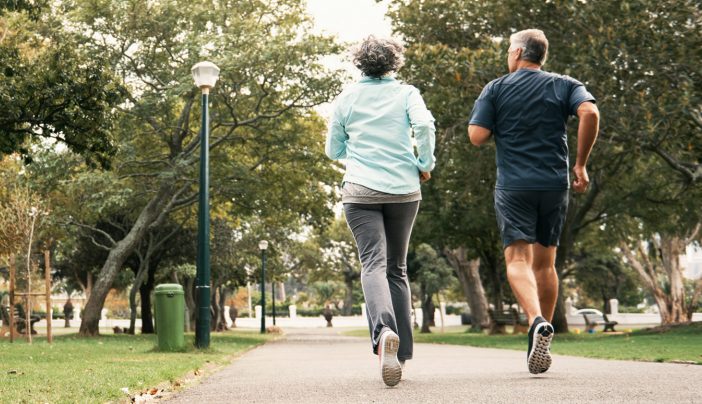Ever wondered why you feel so invigorated after a good workout? It’s not just about burning calories or building muscles. Exercise, whether it’s cardio or strength training, plays a pivotal role in enhancing your overall wellbeing, including the health of your often-overlooked lymphatic system.
Just as your heart pumps blood through your body, your lymphatic system works tirelessly to keep your immune system in top shape. When you exercise, you’re not just improving your cardiovascular health, but also promoting a healthy lymphatic flow. And the benefits don’t stop there. For those dealing with edema or swelling in extremities, exercises can be a game changer. In this guide, we will find out the connection between exercise and the lymphatic system, and how you can harness this knowledge to boost your health and fitness journey.

Contents
- 1 Why Is Exercise Beneficial For The Lymphatic System?
- 2 How Your Lymphatic System May Influence Your Exercise Performance?
- 3 When Lymphatic Drainage Is Necessary?
- 4 Frequently Asked Questions:
- 4.1 What is the role of the lymphatic system in our health?
- 4.2 What types of exercises can improve lymph flow?
- 4.3 How can improving the lymphatic system benefit cancer patients?
- 4.4 Are there studies showing exercise can boost lymphatic health?
- 4.5 How can I recognize a malfunctioning lymphatic system?
- 4.6 Does lymphatic drainage have any scientific backing?
- 4.7 How can I tell if my lymphatic drainage is poor?
Why Is Exercise Beneficial For The Lymphatic System?
The lymphatic system is a network of vessels, nodes, and organs that works closely with the circulatory system to perform several critical functions:
- Fluid Balance: It helps maintain fluid balance in the body by returning excess tissue fluid (lymph) to the bloodstream.
- Immune Function: It transports white blood cells and other immune cells throughout the body, helping to fight infections and diseases.
- Waste Removal: It assists in removing waste products and foreign materials from tissues.
Knowing how exercise benefits the lymphatic system can help individuals prioritize physical activity as a key component of maintaining overall health. Here are the key benefits:
1. Stimulates Lymph Flow:
Unlike the cardiovascular system, the lymphatic system does not have a central pump like the heart. Instead, lymph flow relies on the movement of muscles and joints. Regular physical activity, especially exercises that involve muscle contractions and movement of the body, helps to pump and circulate lymph fluid through the lymph vessels and nodes. This action is essential for the efficient functioning of the lymphatic system.
2. Boosts Immune Response:
Exercise increases the circulation of immune cells in the lymphatic system. These cells are more effectively distributed throughout the body, improving the immune surveillance and increasing the efficiency of detecting and fighting infections. This enhanced immune response can reduce the risk of infections and may improve overall health.
3. Reduces Inflammation:
Regular moderate exercise is known to reduce chronic inflammation, partly by mediating inflammatory responses through improved lymphatic function. By effectively removing waste products and decreasing the inflammatory load, exercise can help in managing conditions associated with chronic inflammation.
4. Prevents Lymphatic Congestion:
Inactivity can lead to a sluggish lymphatic system, which can cause lymph to stagnate and increase the risk of lymphedema and other lymphatic disorders. Physical activity helps prevent the buildup of lymph fluid and supports the lymphatic system in draining excess fluid and toxins from body tissues.
5. Promotes Healing:
By improving lymph flow and enhancing immune function, exercise can also accelerate the healing process. Efficient removal of waste products and rapid transport of healing cells to sites of injury or infection can lead to faster recovery times.
How Your Lymphatic System May Influence Your Exercise Performance?
The lymphatic system, while often overlooked in discussions about physical fitness, plays a crucial role in exercise performance and recovery. Knowing its influence can help optimize your workouts and overall health. Here’s how the lymphatic system may impact your exercise routines:

1. Waste Removal and Recovery:
During exercise, your muscles produce waste products such as lactic acid and other metabolic byproducts. The lymphatic system is responsible for clearing these substances from your tissues. Efficient lymphatic drainage can help reduce muscle soreness and fatigue by removing these waste products more effectively. This accelerates recovery, allowing you to perform better in subsequent workouts and reduce the risk of overtraining.
2. Immune Function:
The lymphatic system is a key part of the immune system, containing lymph nodes that produce and store cells that fight infection and disease. Intense or prolonged exercise can temporarily suppress immune function, potentially increasing susceptibility to infections. However, regular moderate exercise can bolster the lymphatic system, enhancing your body’s ability to manage pathogens and maintain immunity, especially important during heavy training periods.
3. Fluid Balance:
The lymphatic system helps maintain fluid balance in the body by returning excess tissue fluid (lymph) back to the bloodstream. During exercise, fluid dynamics can shift significantly; sweat loss and the movement of fluid into muscles can disrupt balance. Effective lymphatic function helps to manage and redistribute these fluids, which is crucial for maintaining blood volume and pressure, thereby ensuring that muscles receive adequate oxygen and nutrients during activity.
4. Protein Transport:
Beyond removing waste, the lymphatic system is involved in transporting proteins and other large molecules that cannot be absorbed directly into the bloodstream. During recovery periods, these proteins are crucial for muscle repair and growth. Efficient lymphatic function supports the transport of these essential nutrients, facilitating better recovery and muscle development.
5. Inflammation Management:
The lymphatic system plays a role in controlling inflammation by removing inflammatory byproducts and delivering anti-inflammatory substances to sites of tissue damage. After intense exercise, controlling inflammation is crucial for recovery and for preparing the body for the next training session. An optimally functioning lymphatic system can help manage and mitigate post-exercise inflammation effectively.
When Lymphatic Drainage Is Necessary?
Lymphatic drainage is most necessary for people with a condition called lymphedema. Lymphedema is a chronic swelling that occurs when lymph fluid builds up in tissues. This can happen when lymph nodes are removed or damaged, or when lymph vessels are blocked.

Here are some signs and symptoms of lymphedema:
- Swelling in one arm or leg
- Aching or discomfort in the affected area
- Tightness or restricted movement in the affected area
- Skin thickening or fibrosis
If you experience any of these symptoms, it is important to see a doctor to get a diagnosis and discuss treatment options.
Lymphatic drainage massage is a gentle form of massage that can help to reduce swelling and improve circulation. It is a common treatment for lymphedema. However, it is important to note that lymphatic drainage massage should only be performed by a trained therapist. Self-massage may not be effective and could even worsen symptoms.
Other conditions that may benefit from lymphatic drainage massage include:
- Chronic pain
- Fibromyalgia
- Lipedema
- Wound healing
- Sinusitis
- Migraines
- Acne
Frequently Asked Questions:
What is the role of the lymphatic system in our health?
The lymphatic system actively filters our body, maintaining our health, especially in scenarios like cancer treatment. It plays an essential role by improving lymphatic function which aids in recovery and exercise performance.
What types of exercises can improve lymph flow?
Exercises like trampoline jumping, yoga, Tai Chi, and Qi Gong can enhance lymph flow. It’s also beneficial to incorporate mindful movements and controlled deep breathing exercises into your daily workout routine to support lymphatic health.
How can improving the lymphatic system benefit cancer patients?
Improved lymphatic function is especially beneficial in the context of cancer diagnosis and treatment, where enhanced lymphatic flow can assist in recovery and exercise performance.
Are there studies showing exercise can boost lymphatic health?
Yes, a study involving mice has shown that exercise can give a boost to lymphatic function. After the workout, the mice presented improved lymphatic health, demonstrating the benefits of physical activity on this crucial body system.
How can I recognize a malfunctioning lymphatic system?
Signs of a dysfunctional lymphatic system may include issues like lymphedema, which causes swelling in arms, legs, fingers, toes, or tissue in the head and neck area.
Does lymphatic drainage have any scientific backing?
Yes, lymphatic drainage is proven to help relieve symptoms of lymphedema and other certain health conditions that cause lymph fluid buildup. It helps remove waste and toxins from body tissues effectively, promoting better health.
How can I tell if my lymphatic drainage is poor?
Symptoms of poor lymphatic drainage can include swelling in your arms, legs, or other affected areas, a feeling of heaviness or tightness in the affected areas, aching and discomfort, and limited movement in your affected limbs.

Hello, I’m Ravindra. Over the years, I’ve immersed myself deeply into the world of fitness and health, transforming both my body and mind. Writing has allowed me to share my journey, insights, and expertise with those just starting out and seasoned fitness enthusiasts alike. Beyond just routines and diets, I believe in inspiring others to adopt a holistic approach to well-being.
